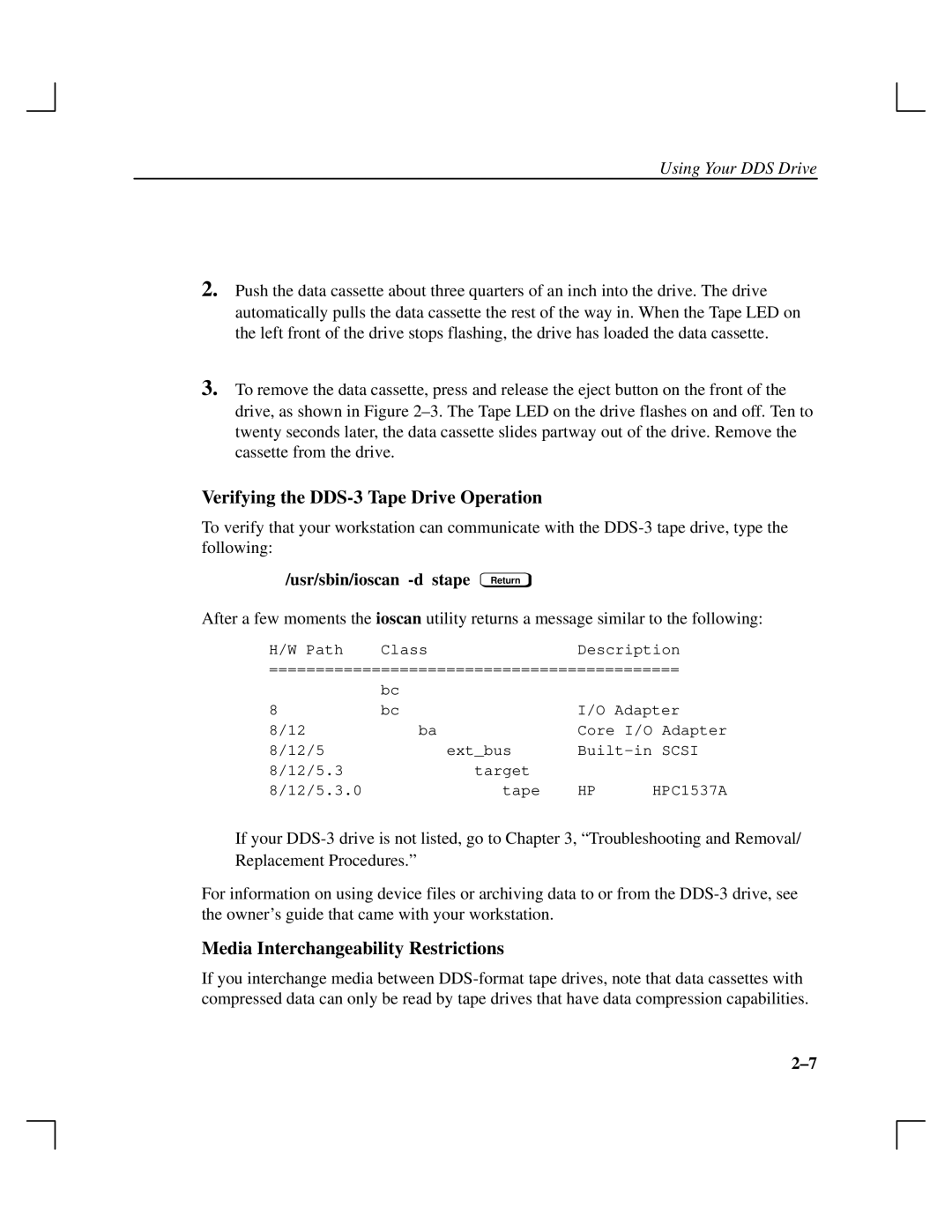
Using Your DDS Drive
2.Push the data cassette about three quarters of an inch into the drive. The drive automatically pulls the data cassette the rest of the way in. When the Tape LED on the left front of the drive stops flashing, the drive has loaded the data cassette.
3.To remove the data cassette, press and release the eject button on the front of the drive, as shown in Figure 2±3. The Tape LED on the drive flashes on and off. Ten to twenty seconds later, the data cassette slides partway out of the drive. Remove the cassette from the drive.
Verifying the DDS-3 Tape Drive Operation
To verify that your workstation can communicate with the
/usr/sbin/ioscan -d stape Return
After a few moments the ioscan utility returns a message similar to the following:
H/W Path | Class | Description |
============================================ | ||
| bc |
|
8 | bc | I/O Adapter |
8/12 | ba |
| Core I/O | Adapter |
8/12/5 |
| ext_bus | SCSI | |
8/12/5.3 |
| target |
|
|
8/12/5.3.0 |
| tape | HP | HPC1537A |
If your
For information on using device files or archiving data to or from the
Media Interchangeability Restrictions
If you interchange media between
2±7
